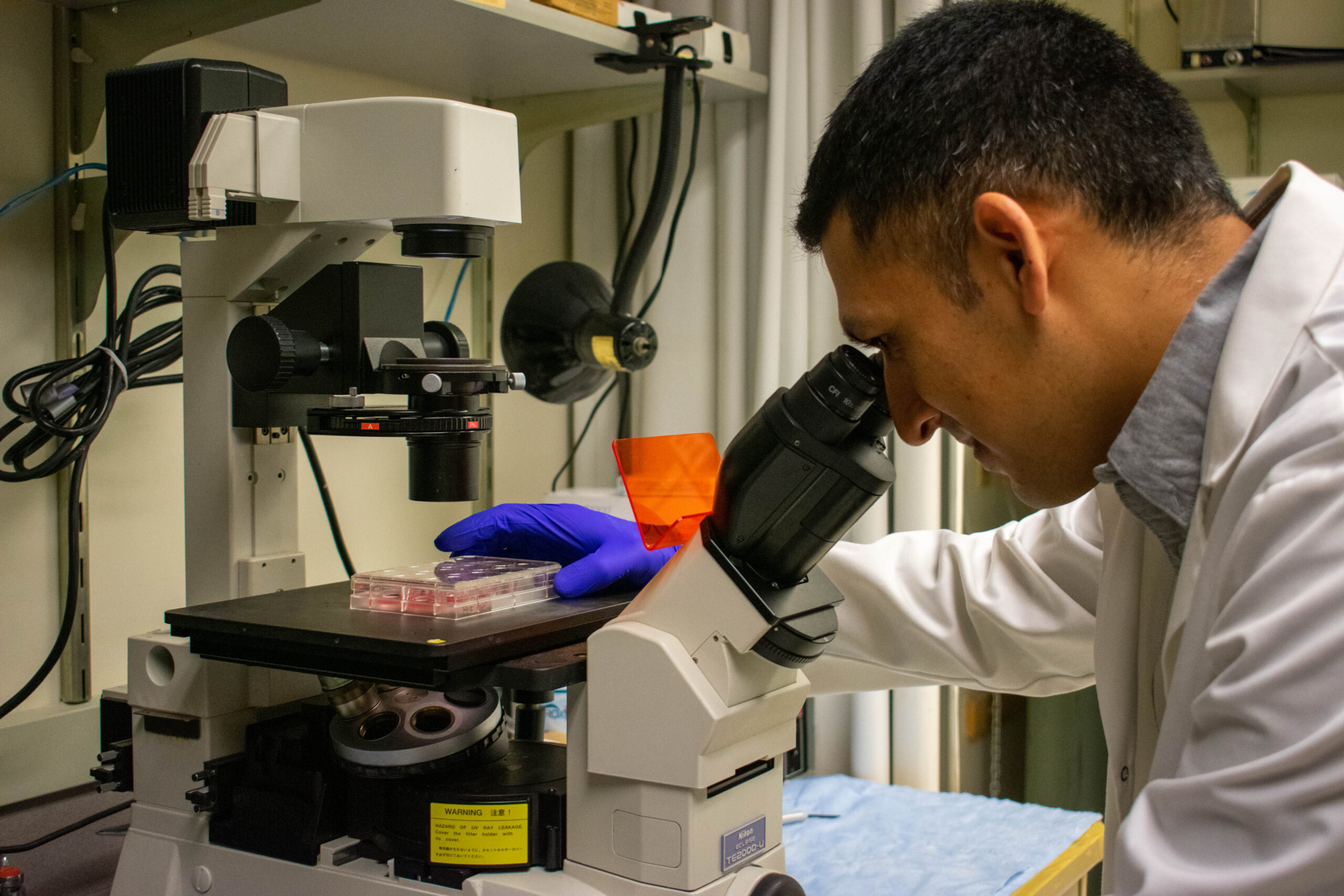On the Orland Bethel Family Musculoskeletal Research Center (BMRC) team is Prashanta Silwal, PhD, an international postdoctoral associate at the University of Pittsburgh. He is working toward identifying molecular and cellular mechanisms of low-back pain and intervertebral disc degeneration (IDD) that could be targets for more effective therapies.
Q: Could you provide an overview of your current role at BMRC and responsibilities in your research position?
A: Currently, I am an international postdoctoral associate in the Ferguson Laboratory for Orthopaedic and Spine Research under BMRC. I am working on ongoing research projects involving ligamentum flavum hypertrophy (a condition where a yellow elastic ligament in the spine thickens and enlarges) and the role of cellular processes in IDD. I analyze molecular and cellular changes in the disc relating to IDD and low-back pain.
By using several advanced techniques, I am working toward identifying viable molecular and cellular targets to support the development of biological and cell-based therapies for IDD and low-back pain. I also write manuscripts to share our research findings with the rest of the research community.
Q: Can you share a bit about your early life and what sparked your interest in research, medicine, and orthopaedics/bioengineering?
A: I was born and raised in Nepal. I have been interested in science since my early childhood, and the unlimited potential that science offers has always excited me. There are so many scientific tools to study the molecular targets and mechanisms involved in several diseases. That made me realize that I wanted to pursue a career in science. I recently joined the Ferguson Laboratory for Orthopaedic and Spine Research as a postdoctoral associate, where I was introduced to orthopaedic research, specifically spine research, by Dr. Nam Vo, Dr. Gwendolyn Sowa, and Dr. Joon Lee.
They have provided me with constant support and guidance. Their expertise, professionalism, and dedication have made a big impact on my perspective on things, and I am truly grateful for the opportunity to work on their team.
Q: Are there specific areas within your field that you are particularly interested in exploring further in the coming years?
A: With the recent development of cutting-edge technologies, including proteomics, transcriptomics, genomics, metabolomics, epigenomic, etc., we are hoping to identify important molecular markers or targets involved in spine disorders for the discovery of novel therapeutics. In the future, I hope to see progress in gene- and cell-based therapy for the treatment of IDD and other spine disorders.


